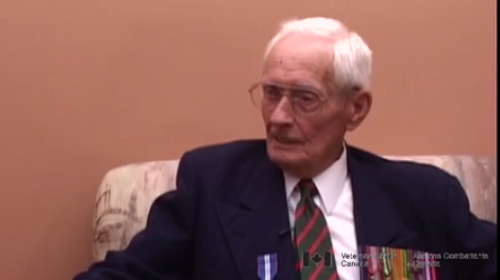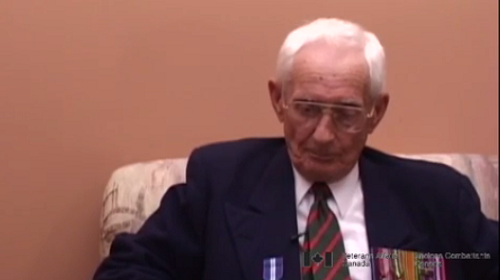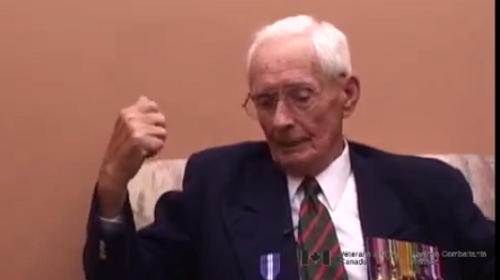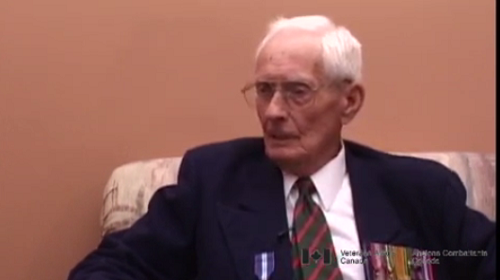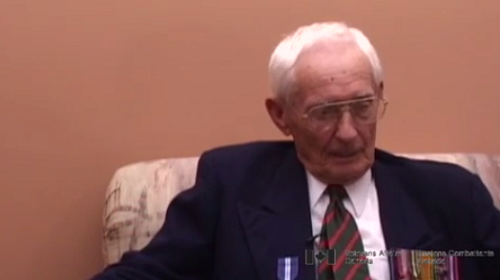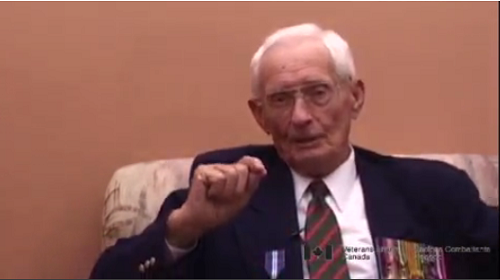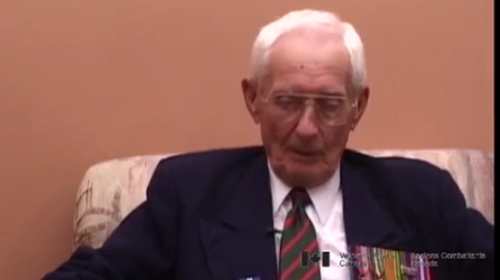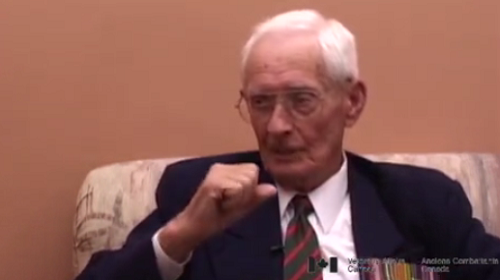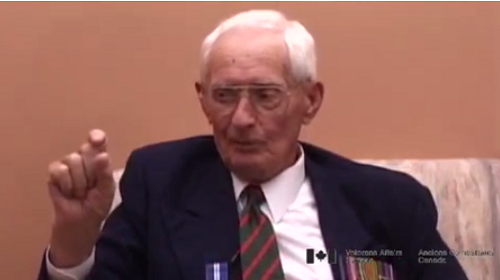Disease and Execution
Heroes Remember
Disease and Execution
Transcript
I had malaria and I had dysentery
and I had all them beri-beris and pains and aches.
It was universal, like everybody.
You expected to have that, but there were certain, certain
people would take beri-beri much worse than others, in real agony.
I had beri-beri, but I never suffered like some of them.
You know, they were, I knew them before the war
and I knew them during the war and I know they weren't scheming.
And finally their toes would turn under and twist down
and they had to walk by throwing their foot that way
so the toes wouldn't hit, trying make it a little flat.
And they wouldn't be able to walk.
I know they decided that they, they decided,
the Japs decided it was really something bad.
So they decided to take the worst ones over to Bowen Road.
Now this is from Sham Shui Po.
So they would take a certain number.
So they picked out the worst ones and they made us take them out
and put them all down, down right by the dock in Sham Shui Po.
And they called it the Bamboo Pier, but it was just a temporary pier.
We put them all down there, about maybe 20, 18, 19, or 20.
So then when the little ferry came in to pick these men up,
the Japs, the guards was all standing around there.
So they just yelled at them, “Get on that boat,”
you know, in Japanese of course.
So the ones that could walk made their feet
and stumbled and fell and made for to get on the boat.
Cause they would, the Japs were poking at them
with their bayonets and that.
And there was a good friend of mine,
they all got up and he couldn't get up.
He got up partly and he fell down.
So I said to myself, they're gonna kill him there.
They're gonna force him to get up and he can't.
They'll bayonet him or shoot him.
So we had orders then, the rest of the guards,
the Japs made us all move back.
Maybe from that wall to the other wall, away from them.
So I turned back and I went back and I took my friend up
and I carried him on the boat.
I wasn't supposed to do that and they were yelling at me
and I didn't know what they were saying of course.
Anyway, I took him on the boat and put him on the boat
and he wanted me to stay with him. He said, “Don't leave me here.”
But I said, “I can't, I got to get off here quick.”
So I turned to go back and when I turned to go back
then they were really screaming at me.
So I thought they were gonna shoot me in the back.
So I was tense I suppose.
I walked right past the guards and walked right back to our own group
and there wasn't a shot fired.
And my, I thought I'd never see him again.
Anyway, he survived.
Description
Mr. Ross describes some of the diseases that ravaged the POWs and describes an incident that probably saved his sick friend’s life and almost cost him his own.
Lancelot ‘Lance’ Ross
Mr. Lance Ross was born in Lac-Megantic, Quebec on October 7, 1911. His father was a carpenter and a family farmer. Mr. Ross went to work at the age of fourteen, holding many odd jobs that paid $1.00 to $1.50 a day. Impatient with the wait for joining the air foce, Mr. Ross joined the army and went overseas to Hong Kong. He was captured and spent time in POW camps. During this time, Mr. Ross kept a diary that was used for the prosecution of Japanese war crimes. After the war, he was active in getting recognition for Hong Kong Veterans.
Meta Data
- Medium:
- Video
- Owner:
- Veterans Affairs Canada
- Duration:
- 3:07
- Person Interviewed:
- Lancelot ‘Lance’ Ross
- War, Conflict or Mission:
- Second World War
- Branch:
- Army
- Units/Ship:
- Royal Rifles of Canada
- Rank:
- Sergeant
- Occupation:
- Platoon Sergeant
Related Videos
- Date modified:



